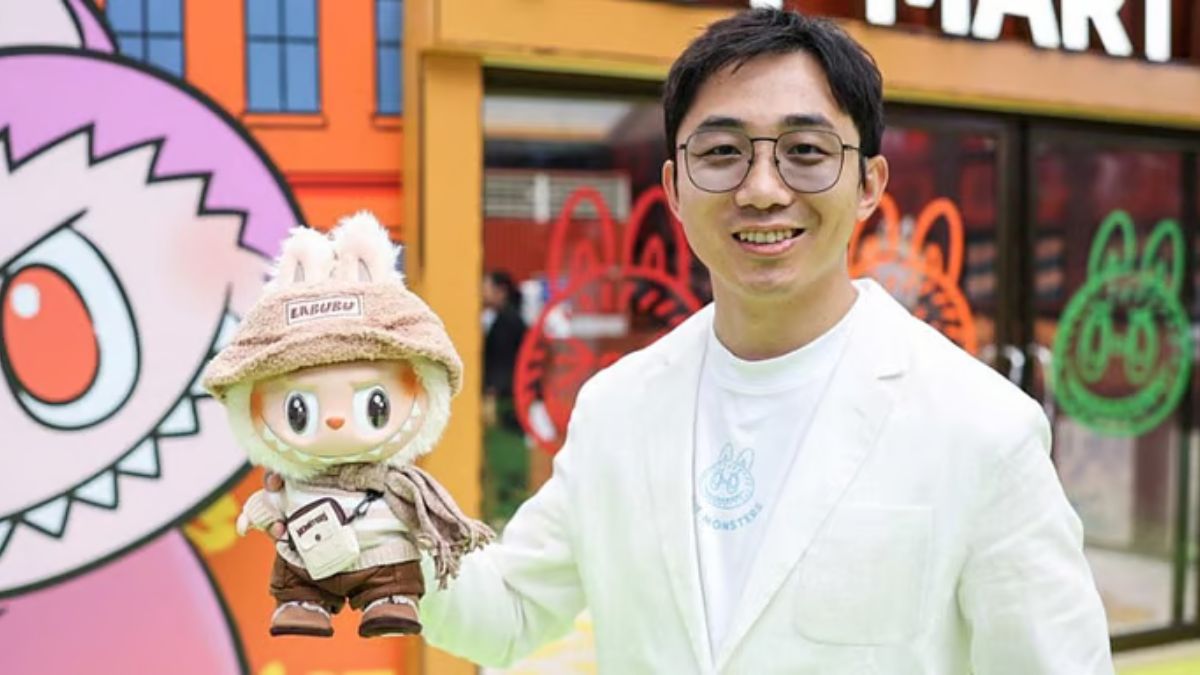You might not fully understand the hype around Labubu, and honestly, you’re not alone. The scruffy, bug-eyed doll is everywhere these days. Love it or not, one thing’s certain: this odd little creature has minted its maker a fortune.
Wang Ning, the founder of Pop Mart International Group, is now one of China’s wealthiest individuals. At just 38, he’s become the country’s 10th richest person, and the youngest on the list, all thanks to the skyrocketing popularity of Labubu dolls across Asia, Europe, and the US.
According to Forbes’ Real-Time Billionaires List, Wang Ning’s net worth has soared to $22.7 billion — nearly quadrupling from $7.59 billion earlier in 2024. He now ranks alongside industry giants like ByteDance’s Zhang Yiming, Nongfu Spring’s Zhong Shanshan, and Tencent’s Ma Huateng.
So, how did this “ugly-cute” toy build a billion-dollar empire? Here’s what we know.
How did the Labubu craze begin?
Labubu was born from the imagination of Kasing Lung, a Hong Kong-based Belgian artist known for his quirky monster-themed artwork. The character first appeared in 2015 in his illustrated book series The Monsters, where it stood out for its wild hair, wide eyes, toothy smile, and that odd mix of creepy and cute.
While Labubu started as a niche character known to art toy collectors, everything changed in 2019 when Pop Mart saw the character’s potential. The company teamed up with Lung, licensed Labubu, and introduced it into its popular “blind box” collections—a hit format among Gen Z and millennials where buyers don’t know which figure they’re getting until they open the box.
That mystery factor, combined with Labubu’s offbeat charm, quickly sparked a collector craze. From small keychains to life-sized plush toys, Labubu is now available in hundreds of designs. Some of the rarest ones have sold for thousands of dollars in resale markets.
With its growing popularity , Labubu soon crossed over into global pop culture. Celebrities like Rihanna, Kim Kardashian, Dua Lipa, BLACKPINK’s Lisa, and even Bollywood actor Ananya Panday have been spotted with the doll.
Every time a new Labubu design is released, it flies off the shelves. While standard figures sell for about $30 (around Rs 2,500), limited editions can fetch much higher prices. In one jaw-dropping example, a human-sized Labubu recently sold for $150,000 (roughly Rs 1.28 crore) at an auction in Beijing.
A bank in China also tried to entice new customers by offering Labubu toys to anyone who opened a new account and deposited more than 50,000 yuan. However, the move was blocked by financial regulators.
How Labubu made Wang Ning one of China’s richest
Wang Ning, the man behind Pop Mart, didn’t start out in the toy business. A former state television employee, he launched Pop Mart in 2010 as a small Beijing-based store selling designer lifestyle products, toys, and gadgets.
But it wasn’t until he leaned into the growing demand for collectible art toys—especially blind box figures—that his business truly took off.
In 2020, Pop Mart went public on the Hong Kong Stock Exchange, and shares surged by 79 per cent on the first day of trading. Since then, the company has expanded globally, opening flagship stores in cities like New York, London, Tokyo, and Seoul, and launching its own theme park in Beijing.
By 2024, Pop Mart’s financial success hit new highs. The company’s net profit surged by 188 per cent, with overall sales more than doubling to around 13 billion yuan (approximately $1.8 billion), according to reports. Big luxury brands like Coach and Louis Vuitton have also teamed up with the company for special collaborations.
Much of this success can be traced back to Labubu. Pop Mart’s The Monsters series, which features the oddball character, saw its revenue soar by a staggering 726.6 per cent, making it one of the brand’s most profitable and popular lines.
With this momentum, global investment giants have taken notice. Deutsche Bank and Morgan Stanley have both raised their share price targets for Pop Mart. Deutsche Bank, in particular, raised its target by 52 per cent to HK$303, citing strong international growth.
“It is rare for a comic/toy IP [intellectual property] to break the culture wall and be embraced by both Asian cultures as well as mainstream Western pop stars and sports stars,” Deutsche Bank analyst Jessie Xu said in a note quoted by Forbes.
With input from agencies


)

)
)
)
)
)
)
)
)



